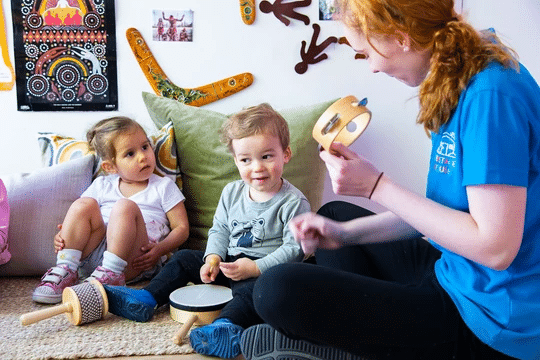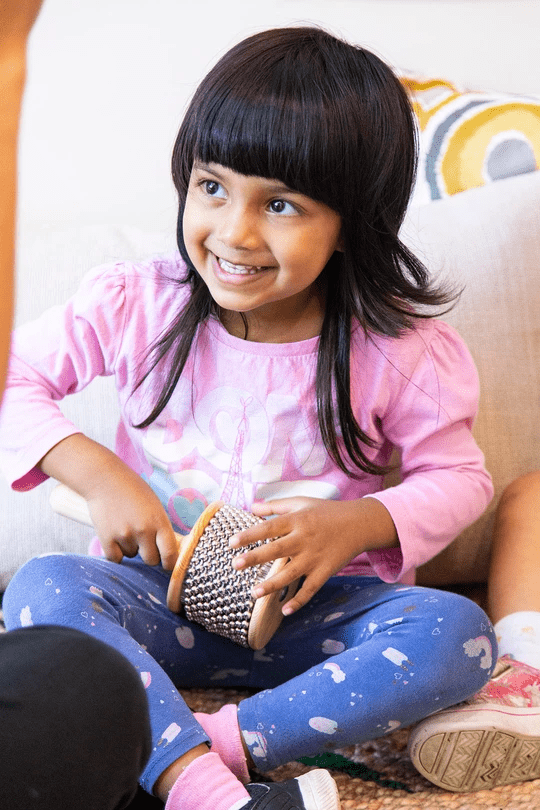 Book a Tour
Book a Tour WhatsApp
WhatsApp Join Waitlist
Join Waitlist
Heritage House takes a holistic approach to childhood development. That means we focus on not just traditional learning like reading, counting and listening skills. We also care about your child’s emotional and social development.

Music is an incredibly valuable tool for children – especially in the early years of their life. It can strengthen their creativity, shape their language, boost their motor skills and even improve their memory. Here are four reasons why Heritage House loves music!

Just like speaking to and reading to a child, listening to songs from a young age helps them learn the sounds and meaning of words. Over time, children become very familiar with the rhythm of the song and the rhymes of the lyrics, which can support reading and writing competency.
When your child starts to join in on the songs, this helps to increase their listening skills and their vocabulary, which will build their communication skills over the long term.
There’s a reason why some of the most skilled memory experts use songs and rhymes to remember complex things. A catchy musical number is extremely powerful in the mind, and it can help children recall specific words and information much easier than rote learning.
Being an active listener when music is playing will also help develop a child’s concentration and attention. It can also reduce stress levels, which is hugely beneficial as your child grows up through the years.
For most children, listening to music is naturally linked to dancing. It gives them the freedom to move as they like and express themselves through music and movement.
When reinforced by parents or educators, children can build on their natural instincts in a safe and fun environment that encourages self-expression through song and dance.
Through this self-expression, children watch other kids doing the same thing. So listening and dancing to music can actually be a great opportunity to socialise – even if it’s completely non-verbal communication.
Through repetition of song and dance, children can develop positive social skills by regularly interacting with others, which will over time help them build friendships and even learn self-control as they watch other children listen to or make their own music.


Want to know more about how Heritage House approaches childhood development in lots of different ways? Contact your local Heritage House centre or reach out to us online.